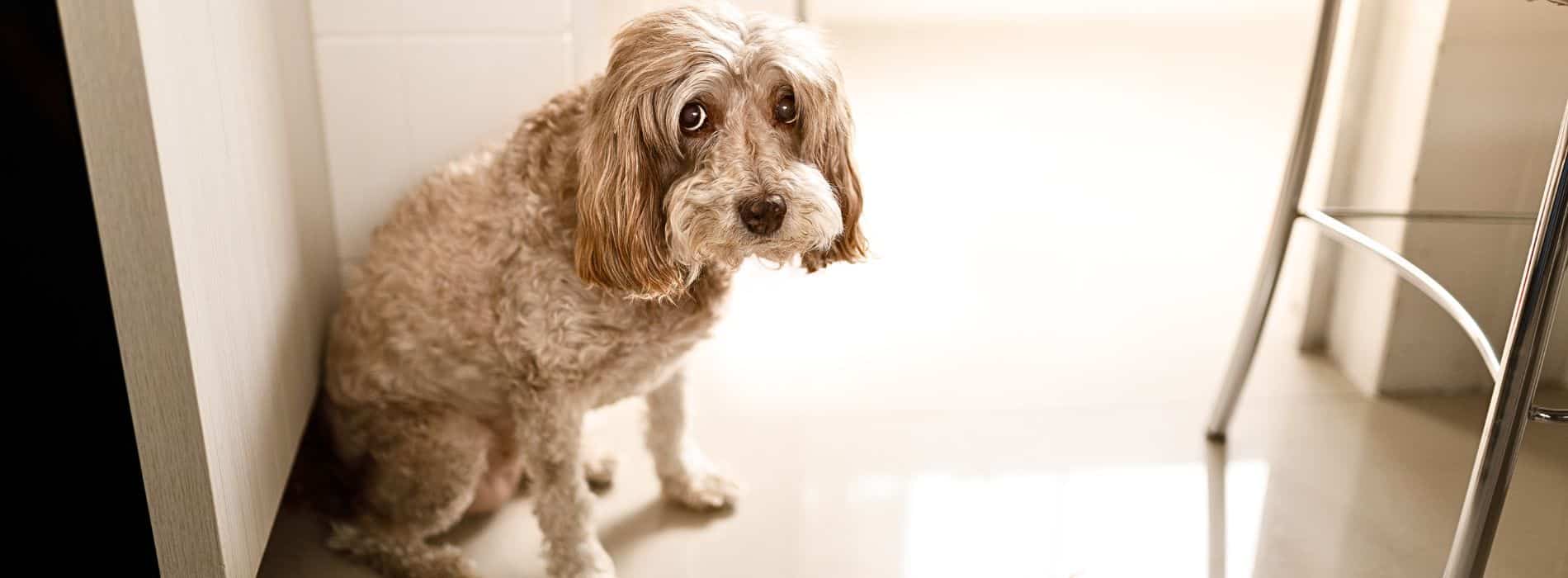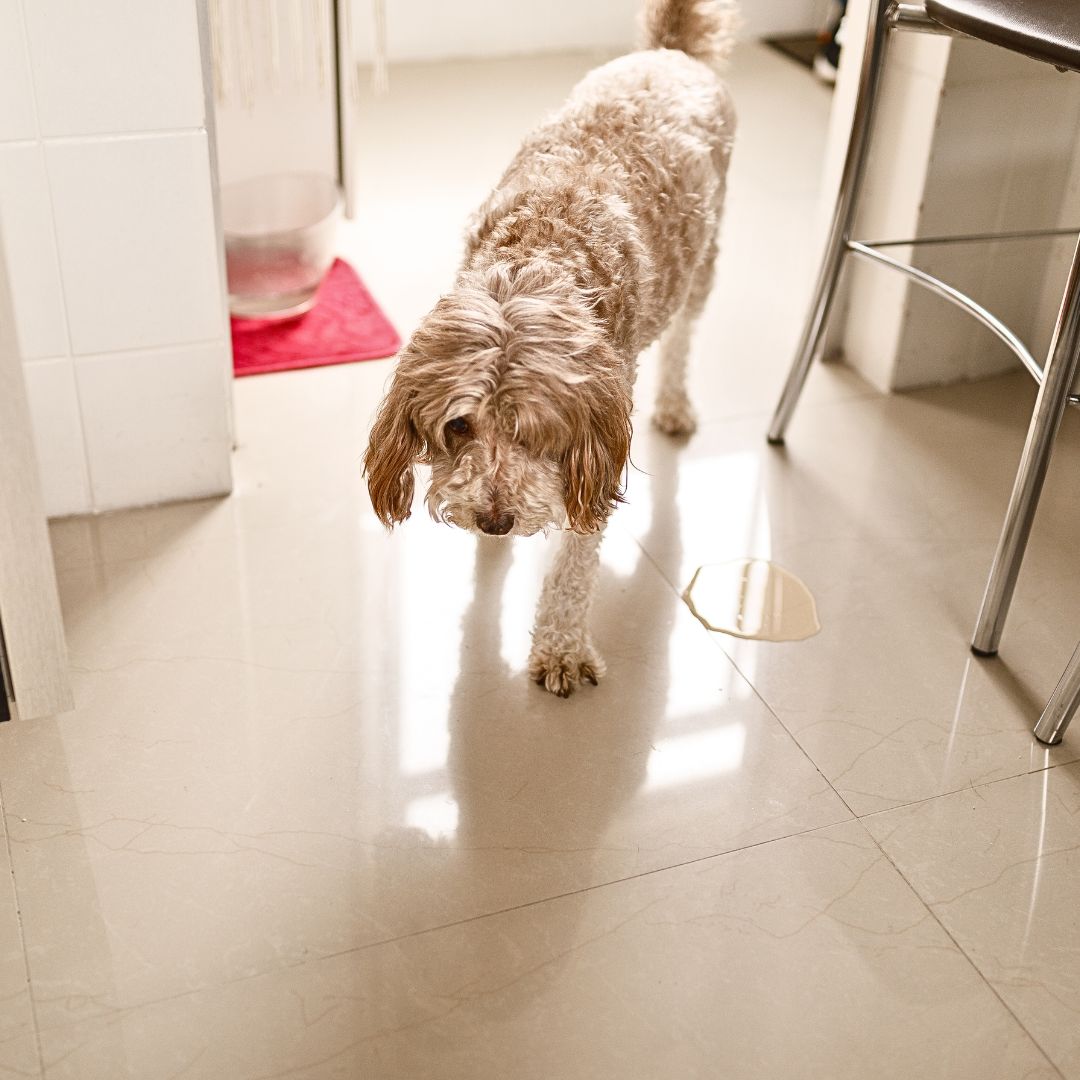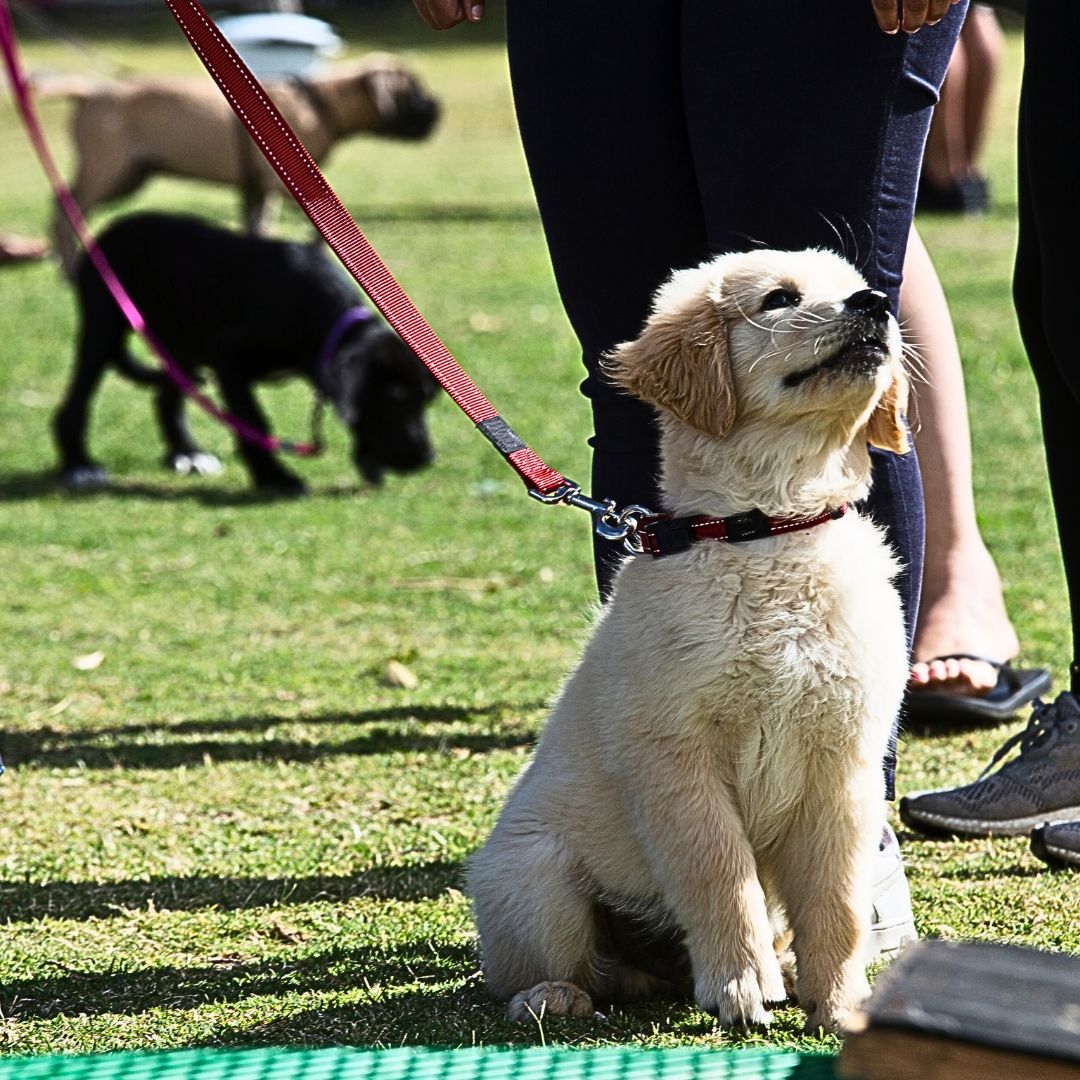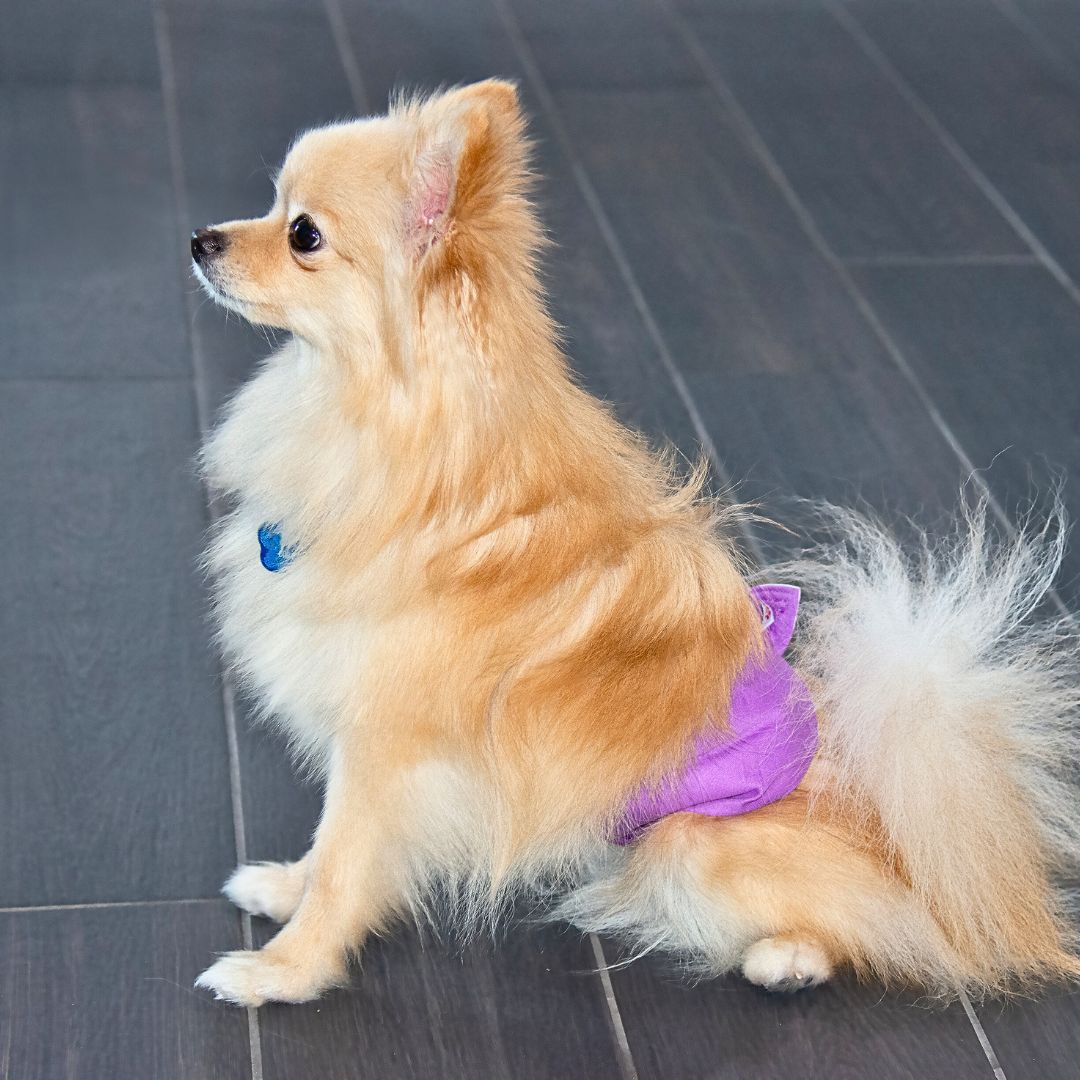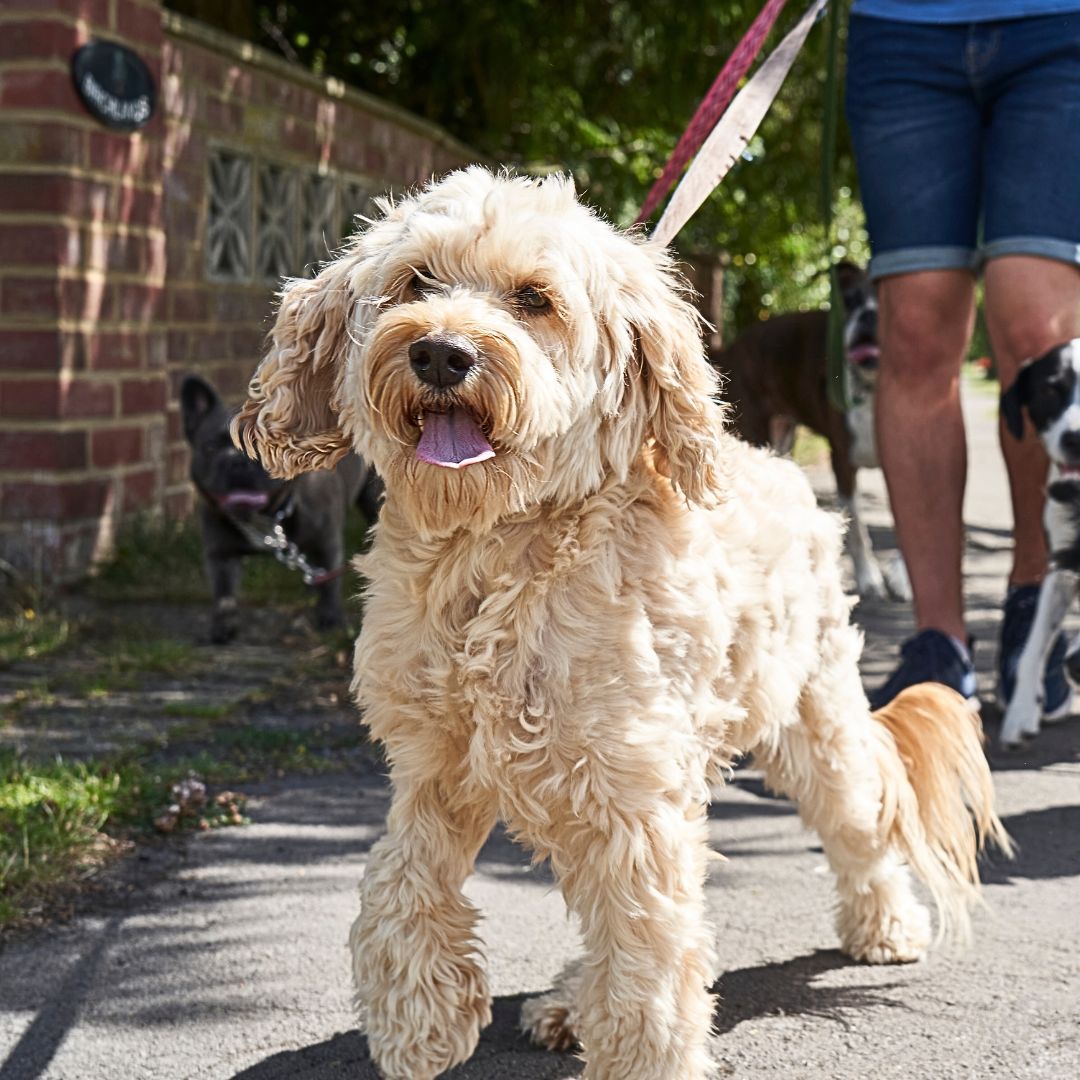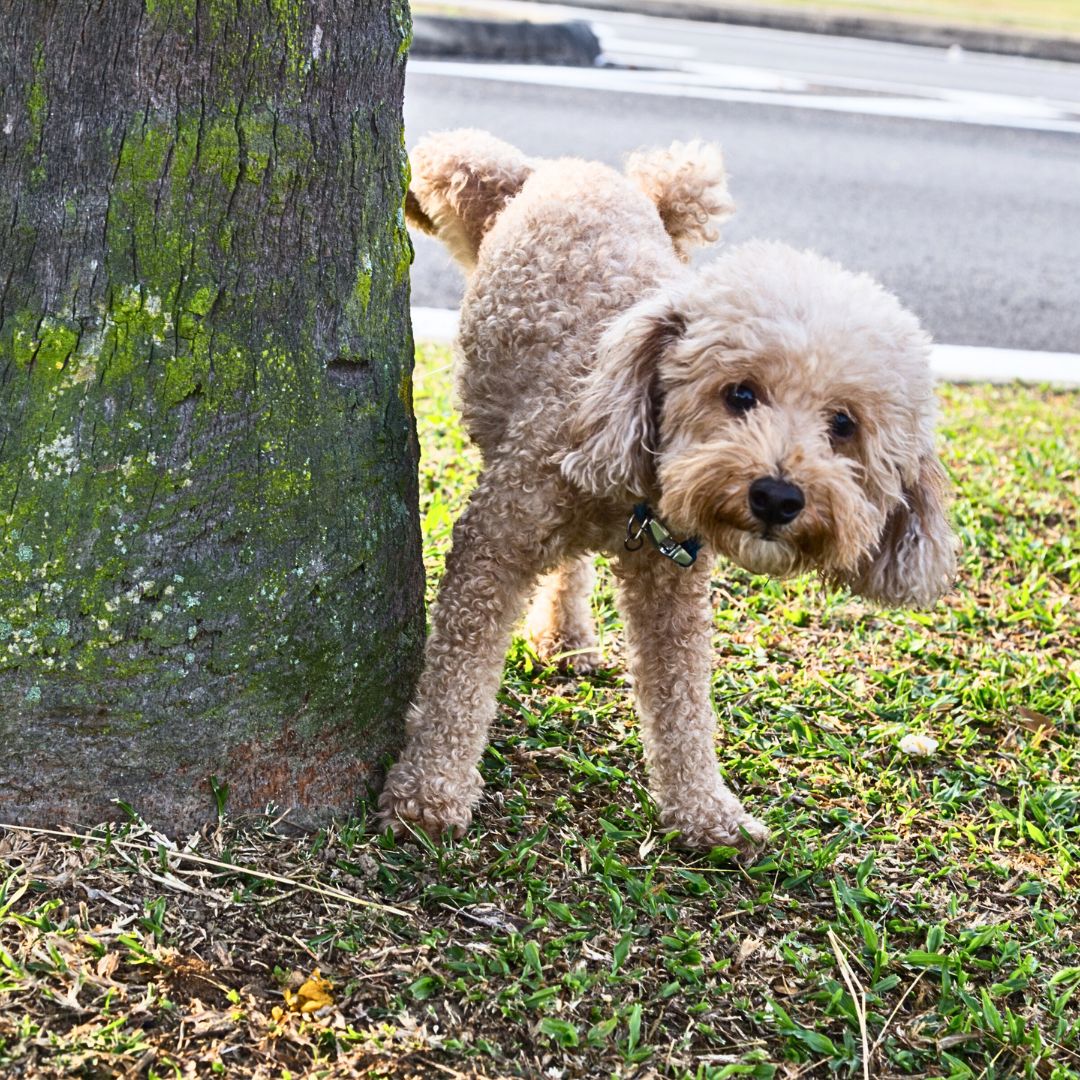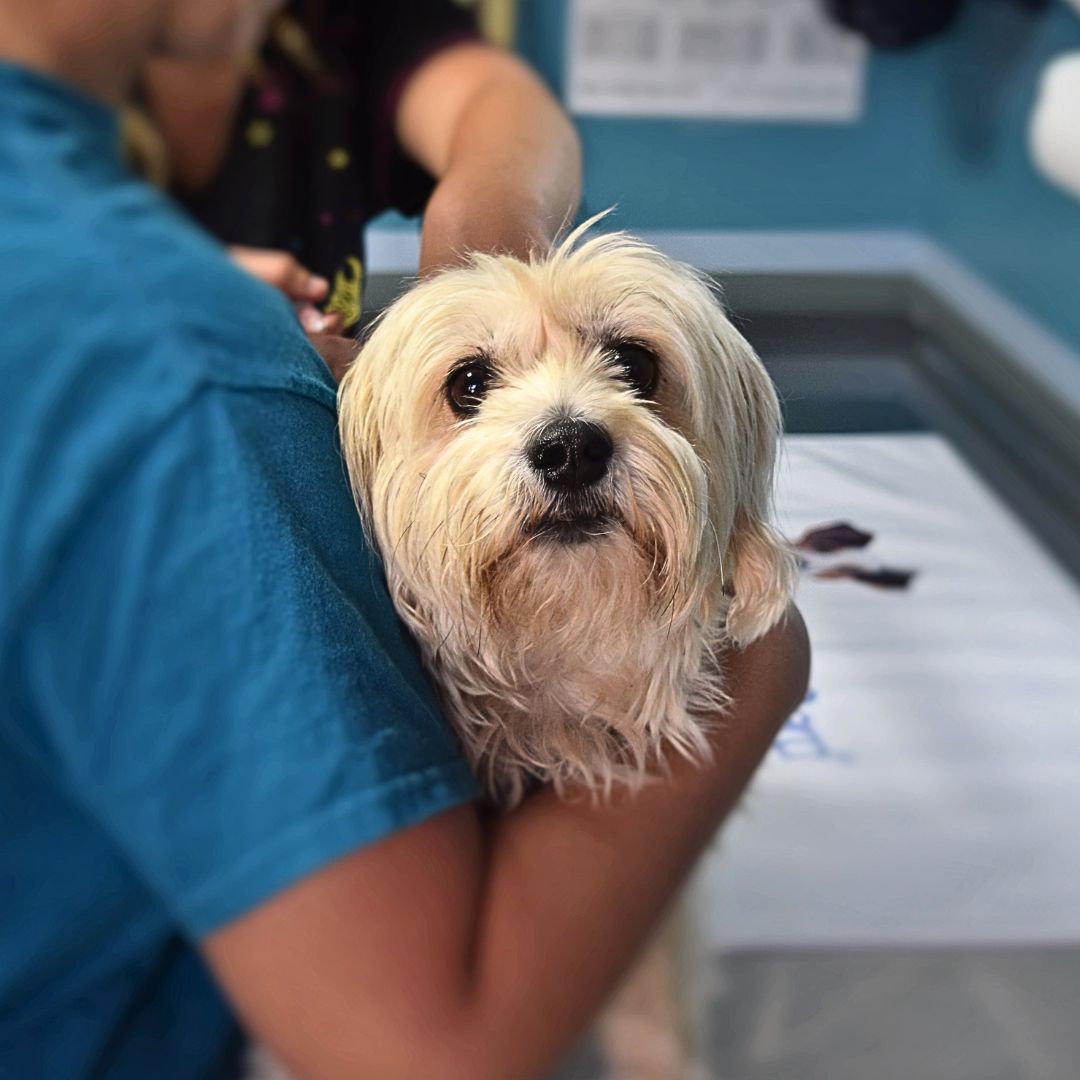A Complete Guide to House your Labradoodle. The Unfortunate Reality of why is my dog pooping in the house and the Importance of Addressing It
Are you tired of dealing with the unfortunate reality of house pooping? Is your labradoodle causing indoor accidents, leaving you frustrated and unsure how to address this behaviour? Rest assured, you’re not alone. Many labradoodle owners face similar challenges when housebreaking their beloved pets.
However, addressing this issue promptly and effectively is crucial to establishing a clean and comfortable living environment for you and your furry friend. This article will explore the reasons behind labradoodle house pooping and provide practical tips to help you tackle this problem head-on. So, let’s get started and say goodbye to those indoor accidents once and for all!
Why Do Labradoodles Poop in the House? Unraveling the Possible Reasons Behind This Behavior
Labradoodles may sometimes have accidents and poop in the house like any other puppies. It can be frustrating for owners, but it’s important to understand that there can be several reasons behind this behaviour.
Let’s unravel some possible explanations.
1. Labradoodle puppy behaviour
Puppies have smaller bladders and less control over their bodily functions than adults. They may only sometimes understand where to relieve themselves, especially if they still need to be properly trained.
2. House training
Suppose your Labradoodle needs to be adequately house-trained. In that case, they may need more time to grasp going outside to do their business fully. Consistent and patient training is crucial to help them understand where it’s appropriate to eliminate.
3. Separation anxiety
Some Labradoodles may experience separation anxiety when left alone. Stress can manifest in different ways, including eliminating indoors. Separation anxiety could contribute if your Labradoodle only poops in the house when you’re away.
4. Medical issues
Medical issues such as digestive problems or infections can cause a Labradoodle to have difficulty controlling their bowel movements. Suppose you suspect this might be the case. In that case, it’s essential to consult with a veterinarian and rule out any underlying health concerns.
5. Marking territory
Sometimes, Labradoodles may poop indoors as a way of marking their territory. This behaviour is more common in un-neutered males but can also occur in females. Neutering or spaying your Labradoodle can help reduce this behaviour.
Here are a few suggestions to address these issues and prevent indoor accidents.
1. Establish a consistent house training routine with frequent bathroom breaks outside.
2. Use positive reinforcement techniques such as rewards and praise your Labradoodle when he eliminates outside.
3. Create a safe and comfortable space for your Labradoodle when you’re away to alleviate separation anxiety.
4. Ensure your Labradoodle receives regular veterinary check-ups to address potential medical issues.
5. Consider neutering or spaying your Labradoodle to minimize territorial marking behaviours.
Patience and positive reinforcement are key when dealing with house training issues. With time and proper training, your Labradoodle can better understand where they should be eliminated.
House Pooping Prevention 101: Effective Strategies to Stop Labradoodles from Pooping Indoors House Pooping Prevention 101:
Your go-to guide for effective strategies to stop Labradoodles from pooping indoors. We understand that dealing with indoor accidents can be frustrating, but fear not! With crate training, establishing a routine, and positive reinforcement, you can create a conducive environment for your furry friends to do their business outside.
Firstly, crate training is an invaluable tool in preventing indoor accidents. Labradoodles are intelligent dogs and can quickly learn to associate being in their crate with a safe and comfortable space. By gradually introducing your Labradoodle to the crate and rewarding them with treats and praise for using it appropriately, you’ll help them develop bladder and bowel control.
Secondly, establishing a routine is key. Dogs thrive on predictability, so set regular mealtimes and take your Labradoodle outside for bathroom breaks at consistent intervals. Be patient during these outings and reward your pup with enthusiastic praise or treats when they do their business in the desired spot.
Lastly, positive reinforcement is essential in shaping desired behaviours. Whenever your Labradoodle successfully goes potty outside, shower them with praise, affection, and maybe even a small treat. The positive association will encourage good behaviour in the future.
Remember, consistency is key throughout this process.
Accidents may happen, especially during the initial stages of training, but remain patient and avoid punishing your pup for mistakes. Instead, focus on redirecting their behaviour to the appropriate place.
By implementing these strategies consistently and patiently, you’ll soon find that house pooping has become a thing of the past. Good luck on your journey to a clean and accident-free home!
Frequently Asked Questions About House Pooping and Solutions
How can I train an older dog not to poop in the house?
Training an older dog to stop pooping in the house can be challenging. Still, with patience and consistency, it is possible.
Here are a few steps you can follow:
Establish a routine: Set a consistent feeding and walking schedule for your dog. Dogs thrive on routine, so establishing one will help them understand when and where they should go potty.
Supervise closely: Keep a close eye on your dog when they are inside the house. If you notice any signs they need to go, such as sniffing or circling, immediately take them outside to their designated bathroom area.
Use positive reinforcement
Whenever your dog goes potty outside, reward them immediately with praise, treats, or a favourite toy. Positive reinforcement helps them associate going potty outside with something enjoyable.
Clean up accidents properly.
Suppose your dog has an accident inside the house. It is important to clean it up thoroughly using an enzyme-based cleaner designed for pet urine and feces. This will remove any lingering scent that may return your dog to the same spot.
Limit access indoors
If your dog continues to have accidents, consider limiting their access to certain areas of the house until they have consistently developed good bathroom habits.
Seek professional help if needed.
If you need help to train your older dog, consider seeking guidance from a professional dog trainer or behaviourist who can provide targeted advice and techniques for your situation.
Remember, consistency and positive reinforcement are vital when training any dog. Be patient and understanding during the process, as it may take some time for your older dog to adjust to new habits.
Why does my Labradoodle only poop inside even though it’s been trained?
I understand it can be frustrating when your Labradoodle continues to have accidents inside, even after training. There could be several reasons why this behaviour is occurring.
Here are a few possibilities to consider.
Medical issues
It’s essential to rule out any underlying health conditions that could be causing your Labradoodle to have difficulty controlling their bowel movements. Consulting with your veterinarian will help determine if any medical issues contribute to this behaviour.
Stress or anxiety
Dogs can sometimes have accidents indoors when they feel stressed or anxious. Changes in routine, new environments, or separation anxiety can contribute to this behaviour. Providing a calm environment for your Labradoodle and gradually introducing new experiences may help alleviate their stress.
Insufficient training or inconsistency
Your Labradoodle’s training may need reinforcement or adjustment. Ensure that you consistently use positive reinforcement techniques and provide clear cues for where they should be eliminated.
Lack of bathroom breaks
Dogs, especially puppies, may need more frequent bathroom breaks than initially anticipated. Ensure you take your Labradoodle outside regularly, especially after meals, naps, or playtime.
Remember, patience and consistency are important when addressing this issue. It may take some time and effort to correct the behaviour. Still, with proper training and positive reinforcement, your Labradoodle should eventually learn to eliminate outside consistently.
Remember, consistency is key throughout this process.
Housebreaking a Labradoodle can vary from dog to dog, as each pup has a unique personality and learning speed. However, on average, it can take anywhere from a few weeks to a few months to fully housebreak a Labradoodle.
Consistency and patience are vital when it comes to housebreaking any dog. Start by establishing a routine for your Labradoodle, including regular feeding times and designated potty breaks. Take your pup outside frequently, especially after meals, naps, and playtime. When they relieve themselves in the appropriate spot, reward them with praise to reinforce positive behaviour.
Accidents may happen during training, but it’s important not to scold or punish your Labradoodle. Instead, clean up any accidents calmly and thoroughly, as dogs are more likely to repeat behaviour if they sense anxiety or negativity surrounding it.
Remember that every dog is unique, so the time it takes for your Labradoodle to become fully housebroken may be different from others. Be patient consistent, and provide plenty of positive reinforcement. You’ll be well on your way to successfully housebreaking your Labradoodle.
Solution 1: Reinforce basic house training principles with older Labradoodles.
Consistency and patience are key when reinforcing basic house training principles with older Labradoodles. While it may take more time and effort than training a puppy, you can successfully reinforce proper house training habits in your Labradoodle with the right approach.
Here are some tips to help you along the way.
Establish a routine
Set a regular schedule for feeding, walks, and bathroom breaks. This will help your Labradoodle understand when to go outside and do their business.
Use positive reinforcement
Reward your Labradoodle with praise, treats, or a favourite toy whenever they are outside. This positive reinforcement will help them associate going potty in the right place with good things.
Be vigilant
Keep a close eye on your Labradoodle indoors to prevent accidents. If you notice any signs they need to go, such as sniffing or circling, immediately take them outside to their designated potty area.
Limit access to the house.
In the beginning stages of reinforcement, consider confining your Labradoodle to a small area or using baby gates to prevent access to other parts of the house. Gradually increase their freedom as they demonstrate consistent potty habits.
Clean accidents thoroughly
If accidents happen indoors, clean up the mess promptly using an enzymatic cleaner specifically designed for pet urine. It will help eliminate any lingering odours that might encourage further accidents.
Seek professional help if needed.
If you’re encountering challenges or struggling to reinforce proper house training habits with your older Labradoodle, consider consulting a professional dog trainer or behaviourist.
Older dogs can still learn and adapt to new routines and behaviours. With patience, you can successfully reinforce basic house training principles with your Labradoodle and enjoy a clean, well-behaved furry companion.
Solution 2: Identify and address any underlying medical or behavioural issues in Labradoodles
Like any other breed, Labradoodles may experience certain medical and behavioural issues. It’s important to identify and address these underlying issues to ensure the well-being of your Labradoodle.
Here are some common medical and behavioural issues that Labradoodles may face
Medical issues
Labradoodles may be prone to certain genetic health conditions inherited from their parent breeds, such as hip dysplasia, progressive retinal atrophy (PRA), and various skin allergies. Regular check-ups, proper nutrition, and exercise can help prevent or manage these conditions. Suppose you notice an unusual symptom or changes in your Labradoodle’s health. In that case, it is essential to consult with a veterinarian promptly.
Behavioral issues
Labradoodles are known for their intelligence and energy levels. However, without proper training and socialization, they may develop behavioural problems like excessive barking, separation anxiety, or destructive chewing. Providing consistent training and plenty of exercise is crucial to keep them engaged and well-behaved.
To address these underlying medical and behavioural issues in Labradoodles
Regular veterinary care
Schedule regular vet visits to monitor your Labradoodle’s overall health and catch any potential medical issues early on. Ensure they receive necessary vaccinations, parasite prevention treatments, and dental care.
Genetic testing
Consider genetic testing for common health conditions prevalent in Labradoodles’ parent breeds. It can help identify potential risks early on and allow you to take preventive measures or plan appropriate treatments.
Balanced diet
Provide a well-balanced diet that meets your Labradoodle’s nutritional needs. Consult your veterinarian for recommendations on suitable food options that promote good health and address specific dietary requirements or allergies.
Training and socialization
Invest time in training your Labradoodle using positive reinforcement techniques. Early socialization with people, other animals, and different environments is crucial to prevent behavioural issues and ensure they are well-adjusted and friendly.
Mental and physical exercise
Labradoodles are an active breed that requires mental and physical stimulation. Regular exercise, interactive toys, and puzzle games can help positively channel their energy and prevent boredom-related behavioural problems.
Remember, addressing any underlying medical or behavioural issues in Labradoodles requires patience, consistency, and professional guidance when necessary. You can ensure your Labradoodle companion’s happy and healthy life with proper care and attention.
Achieving a Happy and Accident-Free Home for You and Your Labradoodle
In conclusion, creating a happy and accident-free home for you and your Labradoodle is essential for their well-being and yours. Simple strategies ensure a harmonious living environment that promotes safety, happiness, and peace of mind.
Firstly, it is crucial to establish clear boundaries and rules within your home.
Be consistent when training your Labradoodle. Setting expectations for behaviour, such as not jumping on furniture or not entering certain rooms, will help create a structured environment that promotes good habits.
Regular exercise is vital for the well-being of your Labradoodle. This breed is known for its high energy levels, so providing them with ample opportunities to burn off that energy will prevent boredom and reduce the likelihood of destructive behaviour. Activities like daily walks, interactive playtime, or puzzle toys will stimulate them physically and mentally.
Creating a safe environment
It’s paramount to prevent accidents or injuries. Be mindful of potential hazards such as toxic plants, household chemicals, or small objects that could be swallowed. Keep cords out of reach, secure cabinets containing hazardous materials, and ensure your Labradoodle can always access fresh water.
Maintaining a clean living space
It is important for your Labradoodle’s hygiene and safety. Regularly clean up any spills or messes promptly to prevent slipping accidents or ingesting harmful substances. Regular grooming sessions will also help keep your Labradoodle’s coat healthy and reduce the likelihood of matting or skin issues.
Lastly, remember to provide plenty of love and attention to your Labradoodle.
Labradoodles thrive on companionship and human interaction. Taking the time to bond with them through regular playtime, training sessions, or simply cuddling on the couch will strengthen your relationship and contribute to their happiness.
By following these guidelines and creating a happy and accident-free home for your Labradoodle, you can enjoy the companionship of a well-behaved and content furry friend. Remember, consistency, exercise, safety precautions, cleanliness, and love are the key ingredients to achieving a harmonious living environment for you and your beloved Labradoodle.

